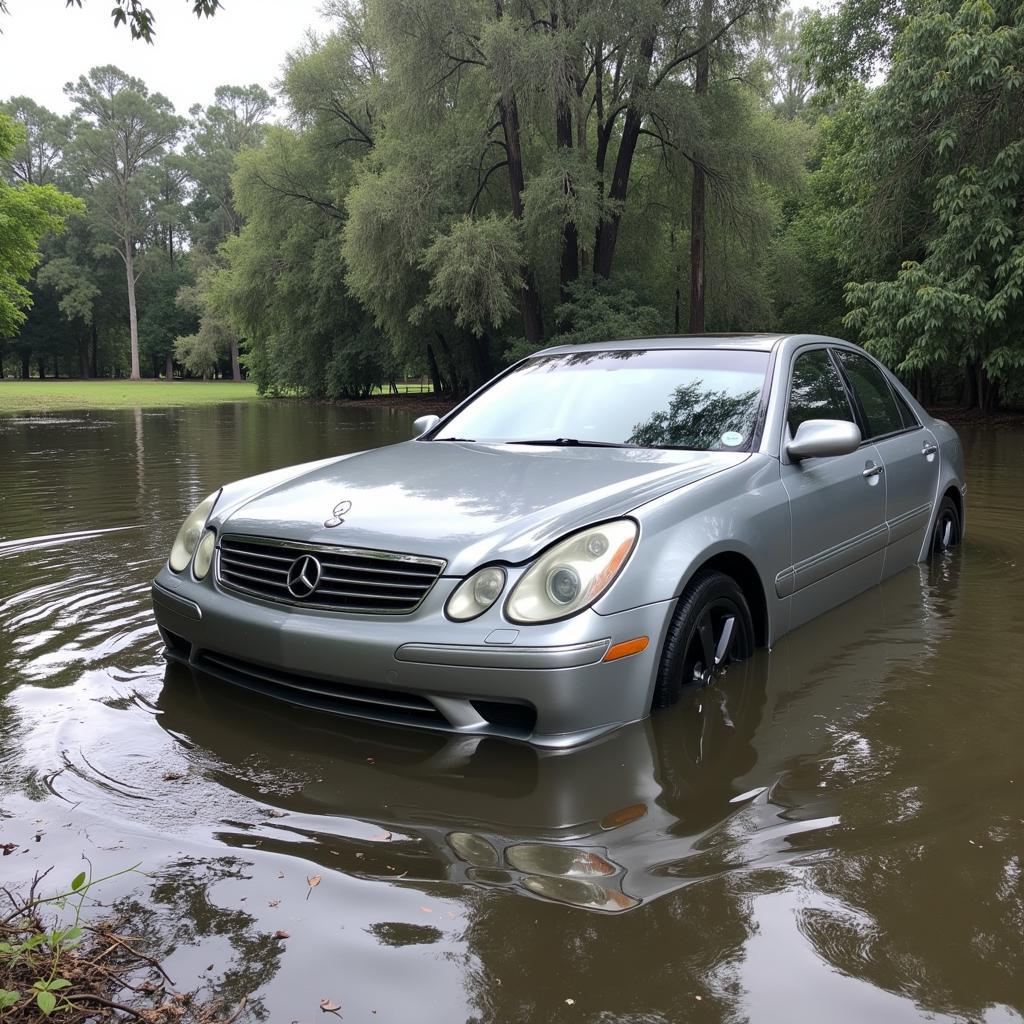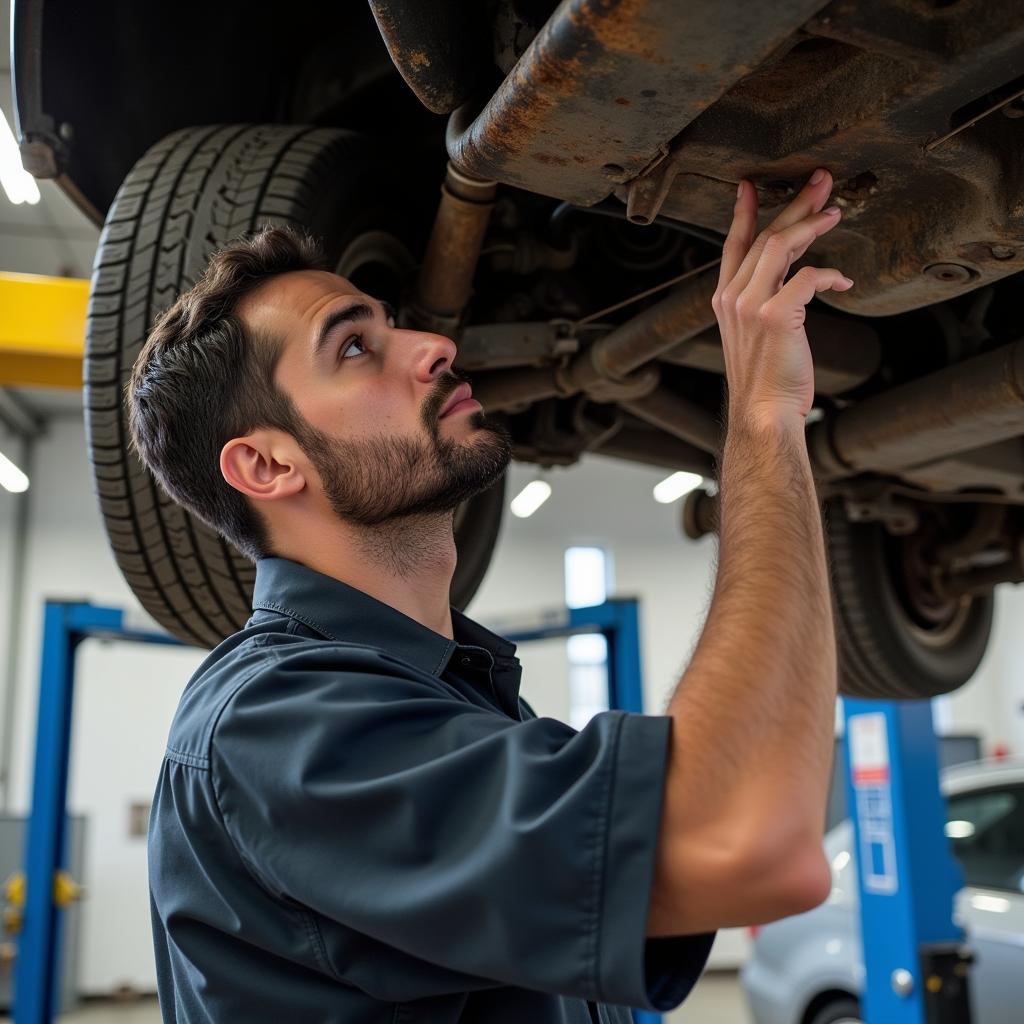Buying a used car can be a great way to save money, but it’s important to be aware of the potential risks. This is especially true when considering used cars from Florida, as the state’s unique climate and driving conditions can lead to specific problems. Here’s what you need to know about the dangers of used cars from Florida and the problems to be wary of before making a purchase.
Why Worry About Used Cars from Florida?
Florida’s humid subtropical climate, while great for vacationers, can wreak havoc on vehicles. The constant heat and humidity create the perfect environment for rust and corrosion, which can affect a car’s structural integrity and vital components. Additionally, the intense sun can damage a car’s paint, interior, and rubber seals over time.
Furthermore, Florida’s frequent storms and flooding can lead to hidden water damage. While a car might appear fine on the surface, underlying electrical systems, upholstery, and carpets can harbor mold and mildew, posing health risks and potentially expensive repairs down the line.
 Flood Damaged Car Florida
Flood Damaged Car Florida
Common Problems with Used Cars from Florida
Being aware of the specific issues common in used cars from Florida can help you make a more informed decision. Here are some of the most prevalent problems to watch out for:
1. Rust and Corrosion:
- Undercarriage: Carefully inspect the car’s undercarriage for any signs of rust, especially around the frame, suspension components, and exhaust system.
- Body Panels: Look for bubbling paint, particularly around the wheel wells, door bottoms, and rocker panels, which could indicate rust underneath.
- Engine Bay: Check for corrosion on engine components, battery terminals, and wiring harnesses.
2. Flood Damage:
- Musty Odor: Be wary of a persistent musty smell inside the car, often a telltale sign of hidden mold or mildew due to water damage.
- Water Stains: Thoroughly inspect the carpets, upholstery, and floor mats for any signs of water stains or discoloration.
- Electrical Issues: Malfunctioning electrical components, such as lights, power windows, or the radio, could indicate water damage to wiring.
 Used Car Inspection in Florida
Used Car Inspection in Florida
3. Sun Damage:
- Faded Paint: Check for uneven fading or discoloration of the paint, especially on the hood, roof, and trunk.
- Cracked Dashboard: Examine the dashboard and other interior plastic surfaces for cracks or warping caused by prolonged sun exposure.
- Deteriorated Seals: Inspect the rubber seals around the doors, windows, and trunk for signs of dryness, cracking, or deterioration.
4. Salt Air Corrosion:
Coastal areas are particularly susceptible to salt air corrosion, which can accelerate rust and damage electrical components. Pay close attention to cars used primarily in coastal regions.
5. Title Washing:
Florida has a history of flood-damaged vehicles ending up back on the market with clean titles through a process known as title washing. Always obtain a vehicle history report from a reputable source like Carfax or AutoCheck to uncover any past accidents, flood damage, or title issues.
Tips for Buying Used Cars from Florida:
- Get a Pre-Purchase Inspection: Never skip a pre-purchase inspection by a trusted mechanic specializing in used cars. They can identify potential problems that may not be immediately obvious.
- Check the Vehicle History Report: Obtain a comprehensive vehicle history report to reveal any past accidents, flood damage, or title issues.
- Inspect the Car Thoroughly: Take your time to inspect the car inside and out, paying close attention to areas prone to rust, flood damage, and sun damage.
- Be Wary of Extremely Low Prices: If a deal seems too good to be true, it probably is. Be skeptical of prices significantly lower than the market average, as it could indicate hidden problems.
- Consider Certified Pre-Owned (CPO) Cars: CPO vehicles typically undergo rigorous inspections and come with warranties, offering more peace of mind.
“Don’t let the sunshine and palm trees fool you,” cautions John Miller, a seasoned automotive technician with over 20 years of experience in Florida. “Used cars from Florida can harbor hidden problems related to the state’s unique climate. A thorough inspection is a must.”
Conclusion:
While purchasing a used car from Florida can be a cost-effective option, it’s crucial to be aware of the potential dangers and problems associated with the state’s climate and driving conditions. By following the tips outlined above and conducting thorough research, you can make a more informed decision and increase your chances of driving home a reliable vehicle.
If you need assistance with buying a used car or have any questions about potential problems, don’t hesitate to contact the experts at AutoTipPro. We’re here to help you make the best decision for your needs.
Call us at: +1 (641) 206-8880
Visit our office: 500 N St Mary’s St, San Antonio, TX 78205, United States
Frequently Asked Questions (FAQ):
- Are all used cars from Florida problematic? No, not all used cars from Florida have problems. However, the state’s climate and environmental factors increase the risk of certain issues.
- How can I tell if a car has flood damage? Look for musty odors, water stains, and electrical issues. A vehicle history report can also reveal past flood damage.
- Is it worth buying a used car from Florida? It can be worth it if you’re careful and take the necessary precautions. A pre-purchase inspection is essential.
- What should I do if I suspect a car I bought has hidden problems? Contact a qualified mechanic immediately for a thorough inspection and diagnosis. You may also have legal recourse depending on the situation.
- How much does a pre-purchase inspection cost? The cost can vary depending on the mechanic and the extent of the inspection, but it’s a worthwhile investment for peace of mind.




Leave a Reply